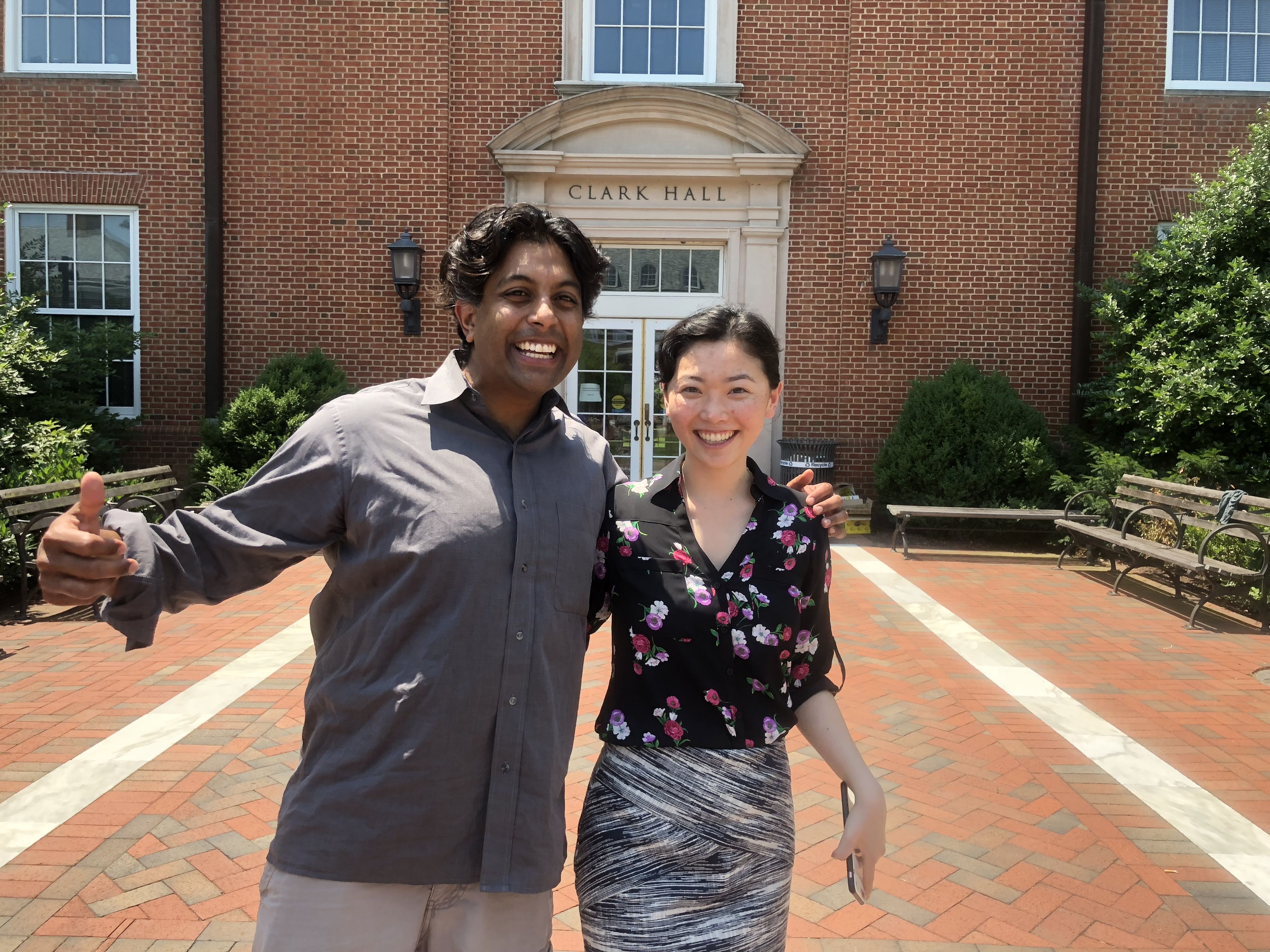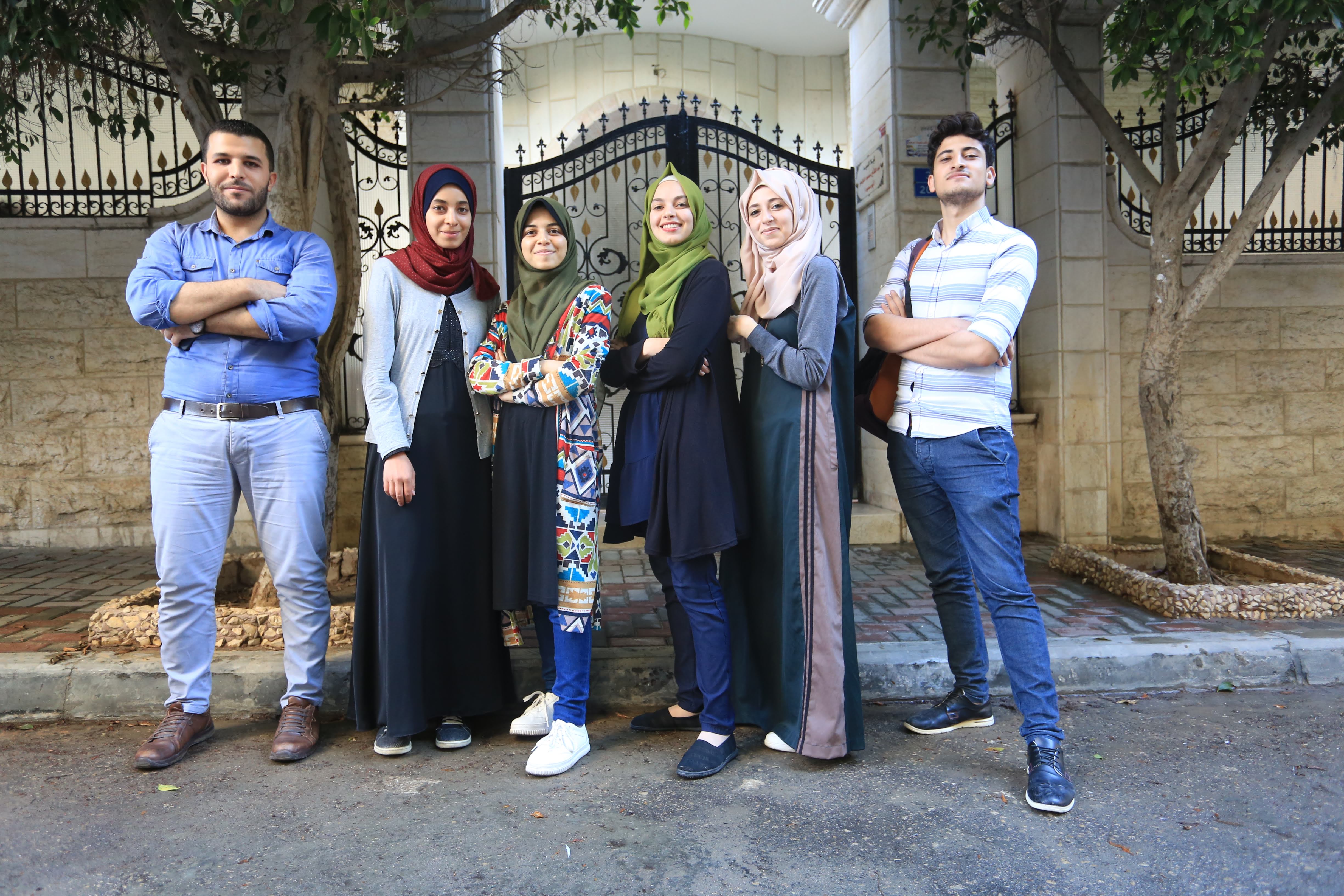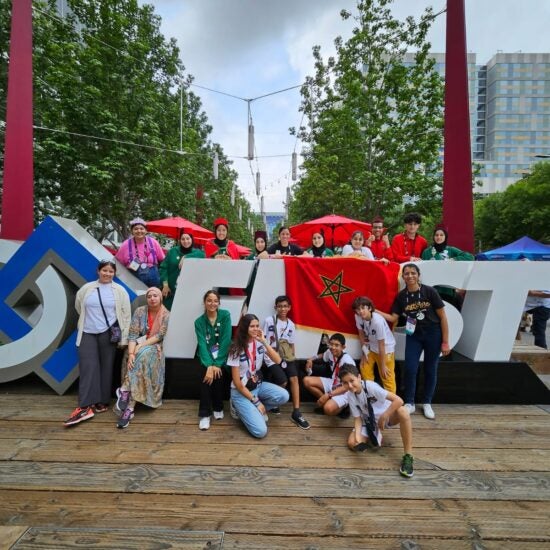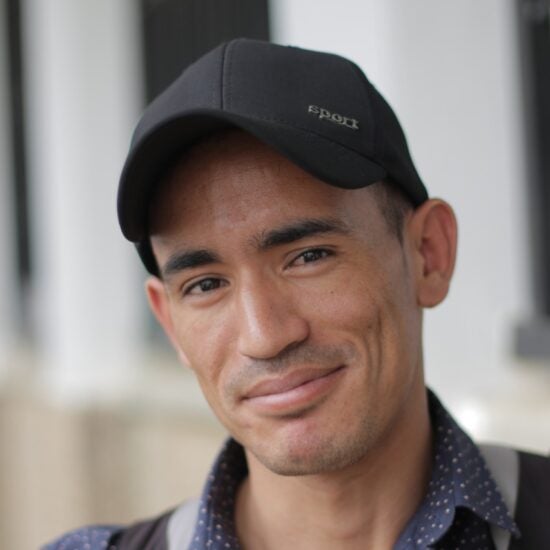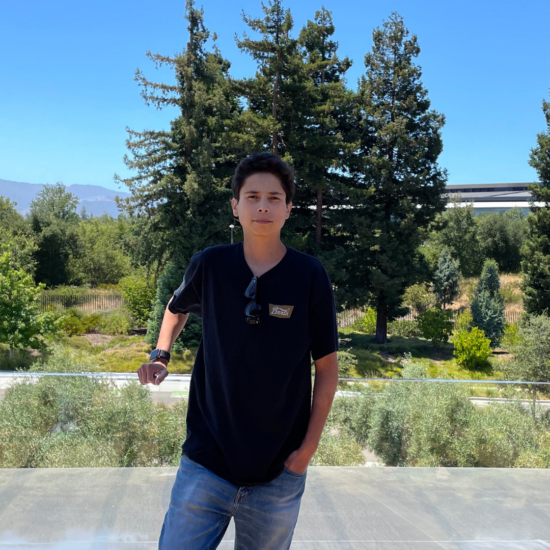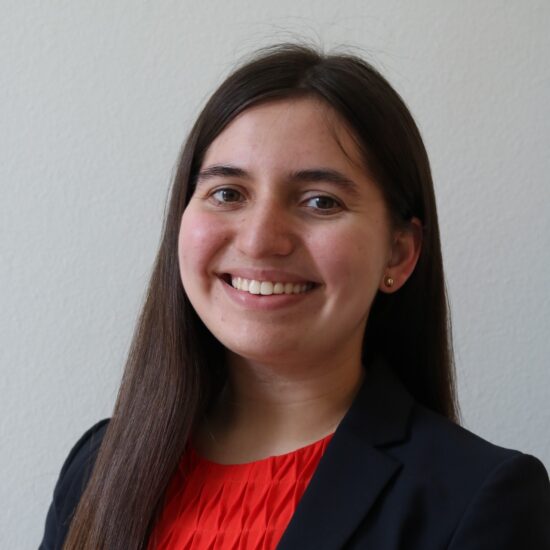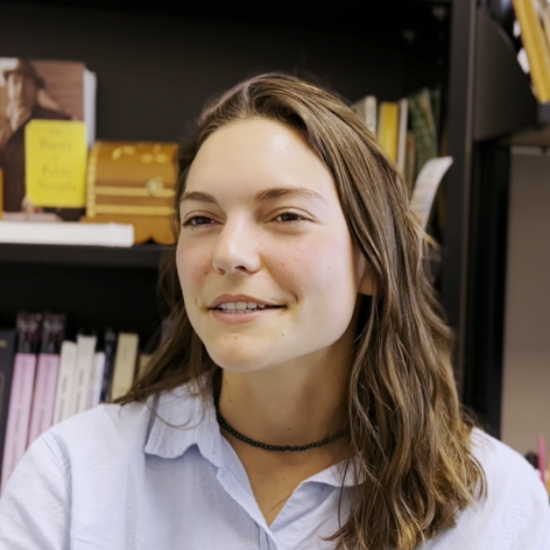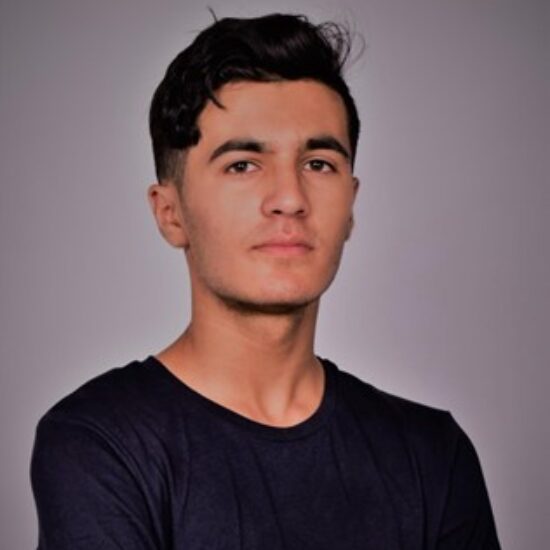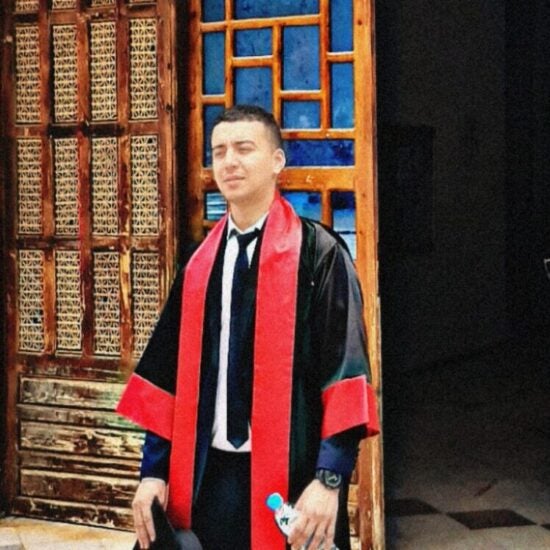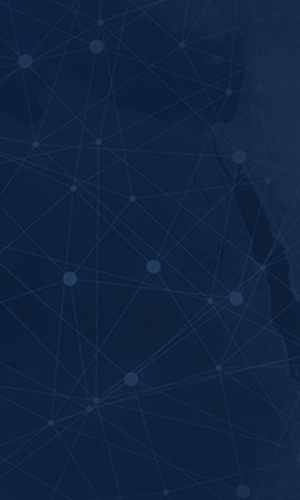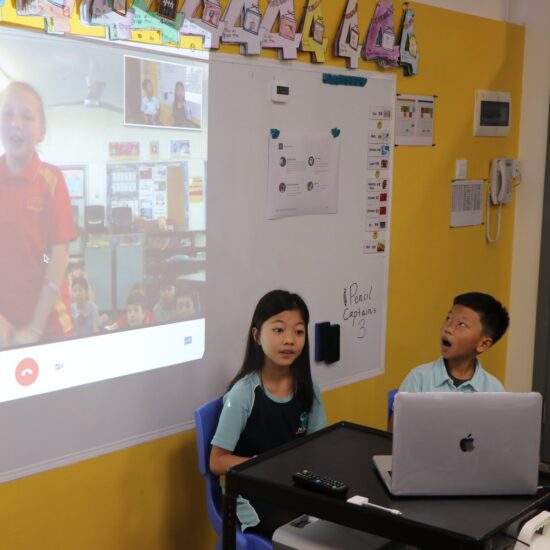Photo of Lucia with another member of her team.
As the child of Vietnamese refugees, Lucia La, a student at Johns Hopkins University, found herself drawn to the field of global public health because of its relevance to marginalized populations. Motivated by a desire to work with students in Gaza to help improve its healthcare infrastructure, Lucia decided to participate in the “Designing Solutions for Health Challenges in Humanitarian Crises” Design Challenge virtual exchange program. Organized by Johns Hopkins’ Center for Bioengineering Innovation and Design and Mercy Corps Gaza, the program leverages virtual exchange to connect students in Baltimore and Gaza to develop public health solutions for those affected by humanitarian emergencies.
The Design Challenge encourages interdisciplinary teams to identify the root causes of pressing public health challenges in Gaza and develop solutions to address them. Such challenges include those facing first responders in times of crises, combatting the prevalence of post-traumatic stress disorder amongst youth in Gaza, or creating diagnostic devices for diabetic neuropathy. Students are equipped with resources and mentorship to help develop their projects for real-world impact.
Prior to her participation in the program, Lucia travelled to Greece, Panama, Nicaragua, Vietnam, and Mexico to work on various public health-related projects. Her vast experiences abroad helped her identify inefficiencies in the healthcare system in Gaza. More specifically, she says that her experience participating in the virtual exchange program allowed her to think about healthcare problems in “new and creative ways.” Her team’s project, “Saeidni7,” drew upon existing technology in Indonesia to create a communication system between ambulances and triage hospital staff that would help distribute resources amongst healthcare facilities in a more equitable fashion. “Participating in this program was so important for my career development because it helped facilitate conversations about capacity and constraints” says Lucia. Ultimately, these conversations enabled her team to design a hospital and ambulance communication system that can operate in Gaza’s 2G SMS network. She feels that she can “repurpose” the knowledge and skills that she gained through this program to help address healthcare challenges in other parts of the world, a skill that will prove to be valuable for her career in global health and healthcare management.
Across the ocean, Nael Alqatati was motivated by similar interests in healthcare design and entrepreneurship. He participated in the Design Challenge because it was the “first entrepreneurship event that was customized to the healthcare industry in Gaza.” As the child of a Palestinian refugee and a trained medical doctor, Nael was intrigued by the program’s emphasis on building novel healthcare solutions for resource-limited settings. Through the program, his team designed a game that employed virtual reality to train civilians in Gaza on basic life support and first aid protocols. Nael believes that the Design Challenge was a “very good opportunity and unique experience” to hone his problem-solving and critical thinking skills and apply them in different scenarios. Now studying for his Masters in Digital Marketing at Loughborough University in London, UK, Nael is passionate about creating a health campaign that reduces mortality rates of Syrian refugees by increasing their access to their health records. Like Lucia, he hopes to use the skills he has gained in design thinking and prototyping for other health-related projects.
Photo of Nael with other members of his team.
For both Lucia and Nael, their virtual exchange experiences have allowed them to cultivate friendships with individuals from different cultural backgrounds. These human connections have motivated both to create even greater impacts in their respective fields.
